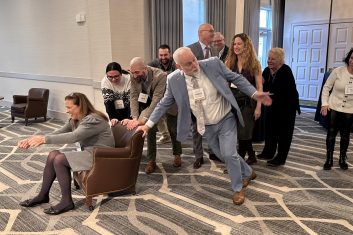New Castle County, Delaware has adopted legislation amending the New Castle County Building Code and Property Maintenance Code to establish routine inspections for certain common interest community buildings, including condominiums. The legislation was adopted on July 25, 2023.
New Castle County, the northern most of the three counties in Delaware, by act of the County Council, empaneled a task force to review and consider issues related to condominiums and other common interest community buildings and structures in light of the recent collapse of Champlain Towers South in Surfside, Florida. The Council also cited to local examples of structural concerns being voiced by residents of New Castle County. The Task Force included members of County Council, residents and numerous industry professionals including members of CAI’s Government and Public Affairs team and several CAI members.
The Task Force began its work in the Fall of 2022 and completed a major part of its work this May by publishing the New Castle County Council Common Interest Community Task Force Recommendations. The Task Force made numerous recommendations for changes to both New Castle County Code as well as Delaware State Law and drafted the legislation adopted this week that accomplishes those recommendations. The changes include:
- Structural Inspections. The Task Force recommended mandatory structural inspections and ongoing maintenance for certain residential common interest community buildings. A structural inspection would be required for any building with a primary load bearing system of concrete, masonry, steel or heavy timber and those buildings with structural slabs over unconditioned space. Initial structural inspections would be required for existing buildings within two (2) years of the effective date of a new law or within sixty (60) days of observable damage. New buildings completed after the effective date of any new law would need a structural inspection within fifteen (15) years of occupancy. Thereafter, the schedule for periodic inspections would be determined by a design professional but be no more than ten (10) years after the preceding inspections during the first twenty (20) years of a building’s life, or more than five (5) years if the building is more than twenty (20) years old. Additionally, the design professional must issue a written report listing any corrective maintenance or repairs and also providing additional information necessary to evaluate all concerns.
- Façade Inspections. The Task Force also recommended mandatory façade inspections for certain residential common interest community buildings four (4) stories or more. An initial facade inspection would be required for existing buildings within two (2) years of the effective date of a new law or within sixty (60) days of observable damage to the façade. If damage is observed which presents an immediate safety hazard, it must be corrected. New buildings completed after the effective date of any new law would need a façade inspection within five (5) years of completion or sixty (60) days after observable damage. Thereafter, the schedule for inspections would be determined by a design professional but be no more than every five (5) years. The design professional must issue a written report describing the condition of the façade and identifying corrective maintenance or repairs.
- Updated Reserve Standards. The Task Force also recommended changes to the Delaware Uniform Common Interest Ownership Act (“DUCIOA”) to reflect contemporary best practices in the industry. Those changes would expand the requirement for a reserve study to all common interest communities, not just condominiums and cooperatives. The Task Force recommended that common interest communities be required to maintain “adequate reserve funds” based upon a thirty (30) year cash flow projection. The Task Force also recommended that the reserve study include the ongoing cost of updating the study and for both structural and façade inspections. The Task Force also recommended revisions to DUCIOA to make clear a declarant of a developing community must obtain and fund under a reserve study.
“New Castle County Council considers the safety of its citizens and buildings in the County to be of paramount concern. This new law is a major step toward ensuring the safety of both,” said Michael Migliore, counsel to the New Castle County Council.
While the recommendations on structural and façade inspections were adopted by the county, the Task Force’s proposed amendments to DUCIOA will not be introduced in the legislature until the 2024 legislative session. The Task Force will also now move forward with a second phase of work, which is to review options and availability of funding for common interest communities to address maintenance, repairs and inspections.
ABOUT THE AUTHORS
Chad J. Toms, Esq. is a Partner with Whiteford Taylor & Preston practicing in the areas of complex business litigation, community associations and business reorganization, frequently handling litigation matters involving common interest communities, corporate governance, fiduciary duty and bankruptcy issues.
Mr. Toms is licensed to practice law in Delaware, New Jersey and Maryland and is also a Certified Public Accountant, currently inactive. He heads up the firm’s Community Association practice in Delaware and the Eastern Shore and manages the firm’s Bethany Beach, Delaware and Ocean City, Maryland offices.
Mr. Toms also serves on the Advisory Council to the Delaware Common Interest Community Ombudsman. He can be contacted at: ctoms@whitefordlaw.com.
Tony Campisi is Executive Director of Community Associations Institute’s Keystone Chapter and the Pennsylvania Legislative Action Committee. He can be contacted via email at: tony@caikeystone.org.







